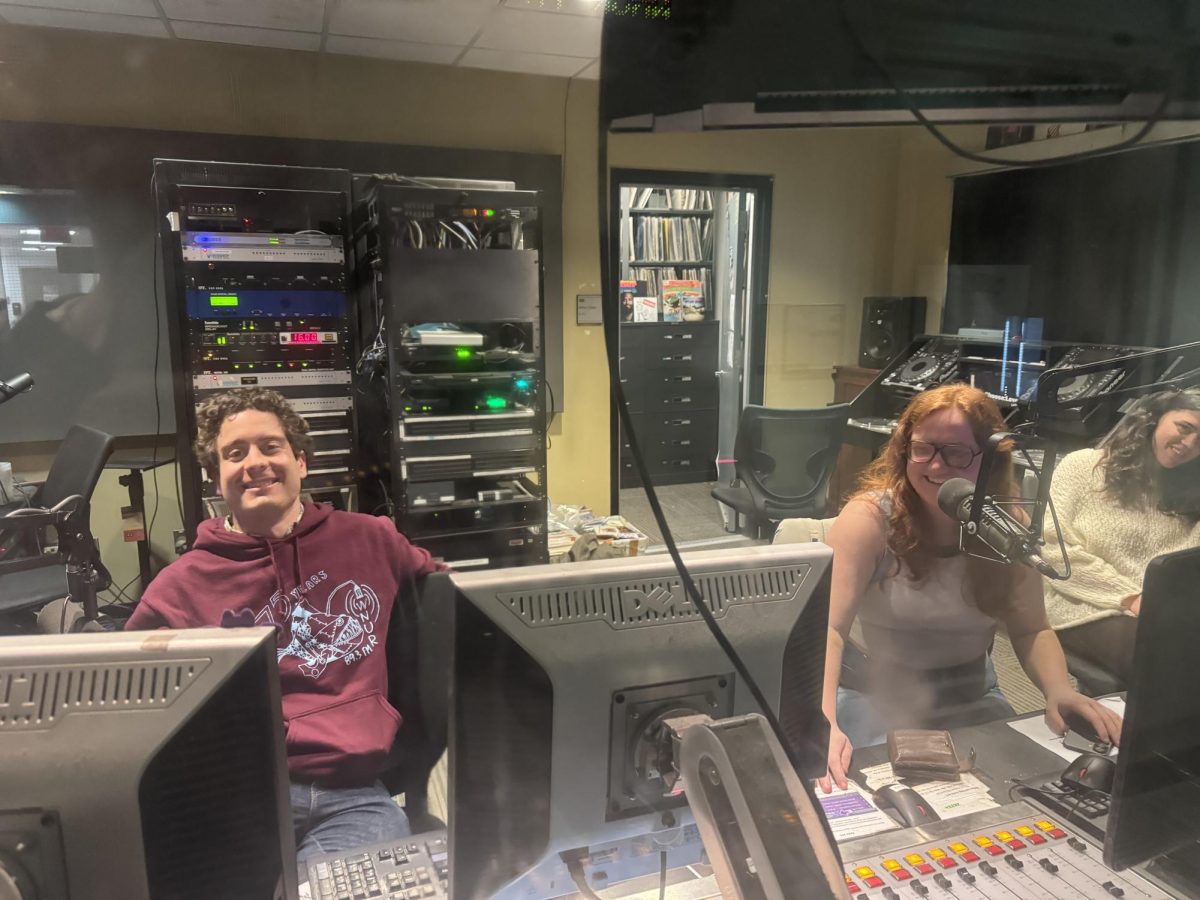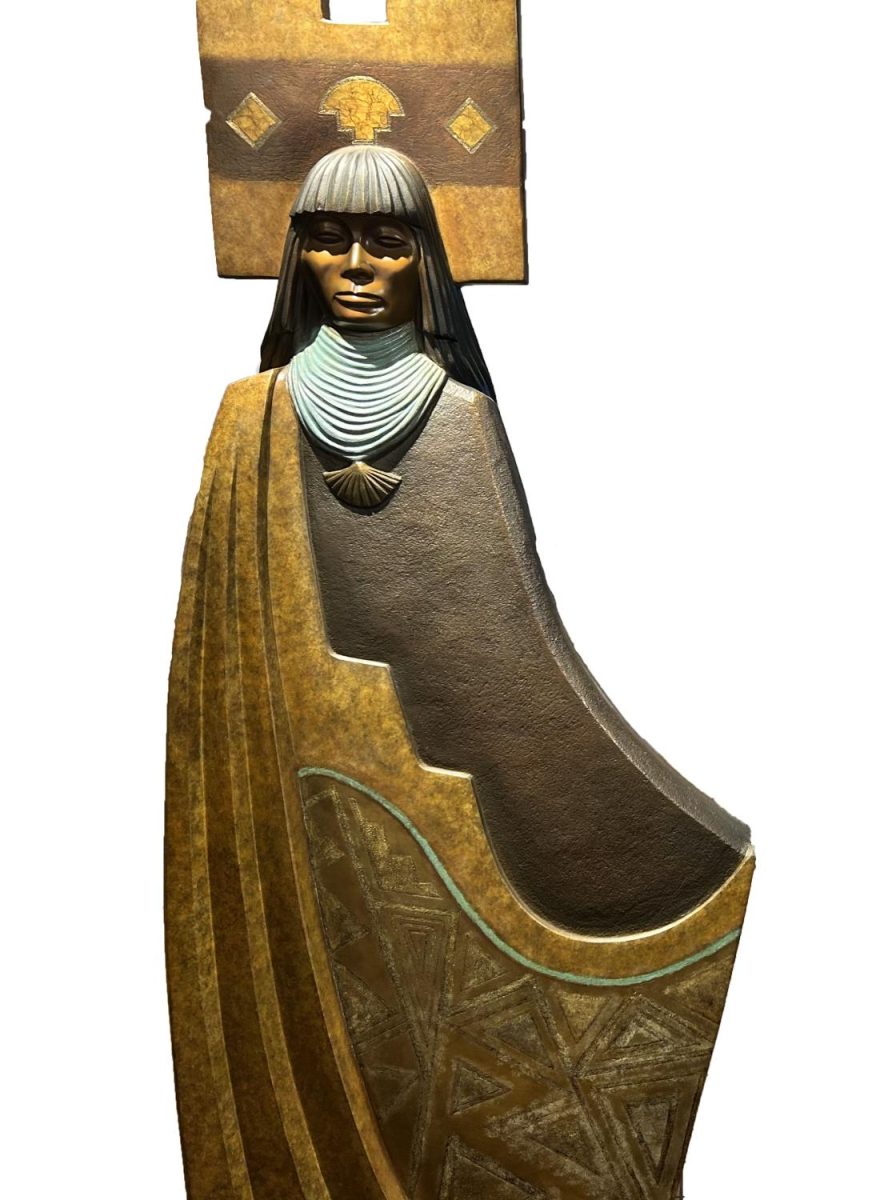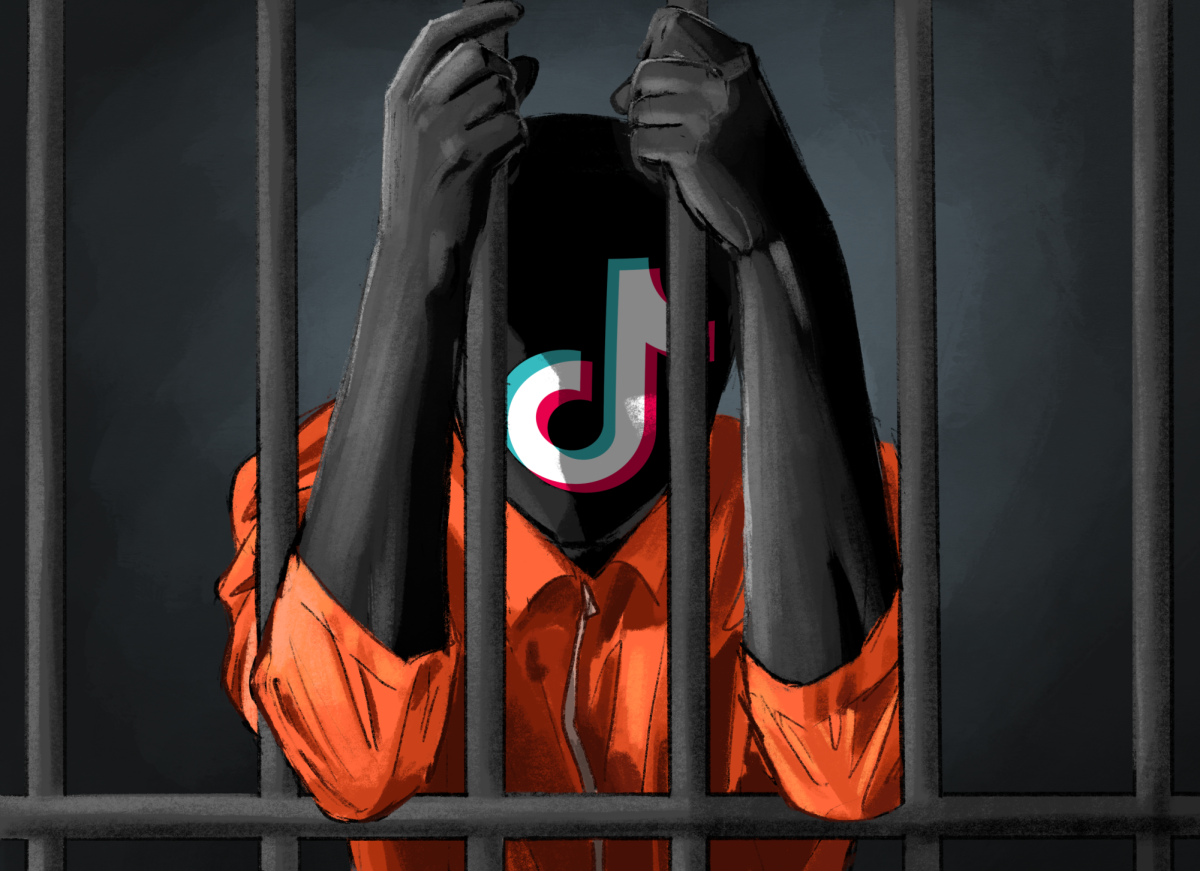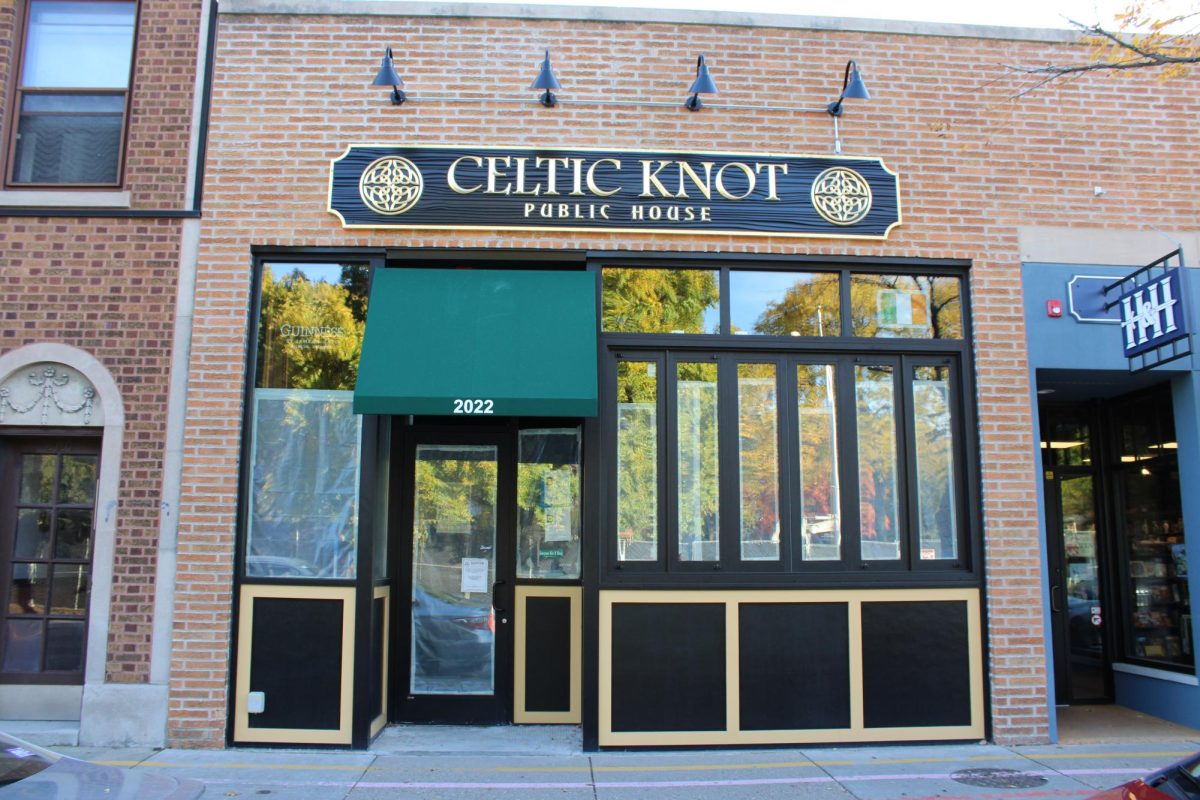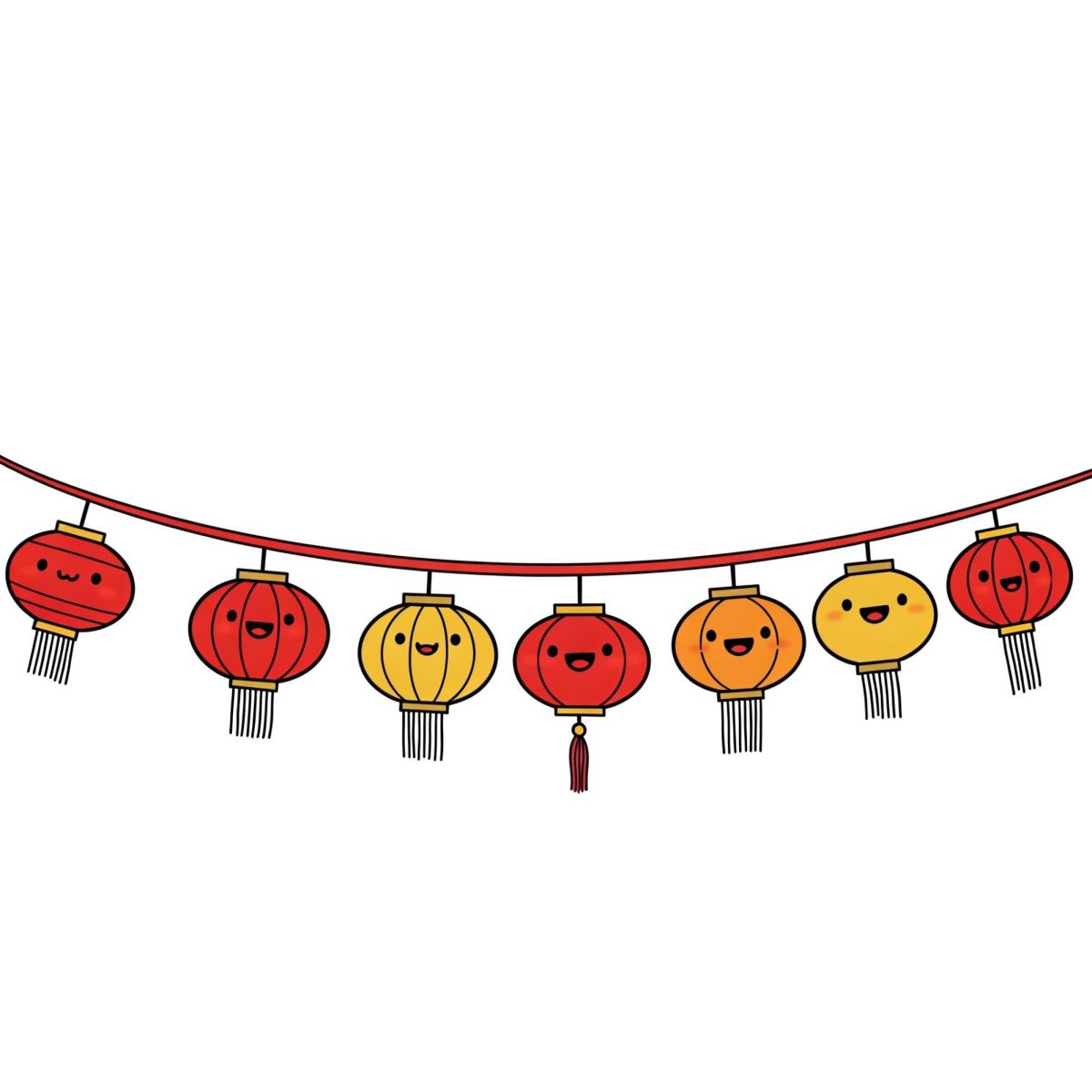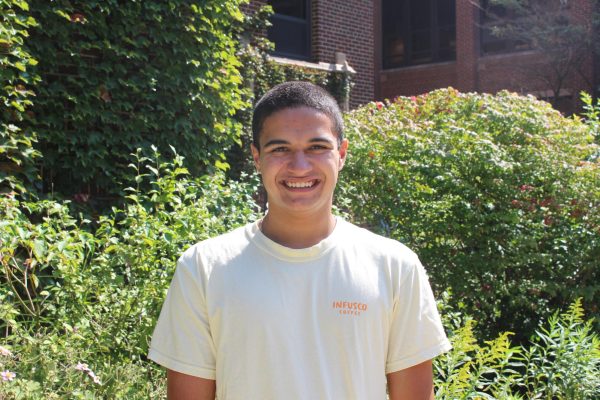For many years, ETHS and other schools across the nation have been dealing with the issue of safety and discipline. The urgency of addressing that aspect of school life was stressed after the lockdown at ETHS in Dec. 2021, where guns were found inside the school. As the 2023-2024 school year kicks off, ETHS administrators have focused on a new approach to discipline and relationship, titled ‘restorative practices’. To help implement the methodology, the new position of Restorative Practices Coordinator was created, and Anthony King, a longtime ETHS staff member, was appointed.
Born and raised in Evanston, King attended the city’s public schools throughout his young academic career. Before working professionally at ETHS, he was a social worker in the Waukegan Public School district for about four years. He came to ETHS in 2001, working as a social worker until 2015, when he became a dean. After working as a dean for six years, he became co-department chair of Student Services, where he helped direct the supervision of social workers and psychologists at the high school. This year, he was appointed Restorative Practices Coordinator.
Restorative practices are something that have been encouraged in schools across the nation for years, and they involve teaching methods that help students improve and repair relationships, thus strengthening the school community. Usually, these practices are used to address conflicts instead of disciplinary action.
“[The high school] has wanted to be more restorative for years and we’ve made steps in that direction but now it’s time to really impact the culture. The research suggests that when schools implement restorative practices, there’s a lower amount of disciplinary action needed altogether,” said King.
For King and other administrators, that means addressing the root causes of negative behavior, and not just looking at the symptoms. In practice, that involves a lot of mediation.
“I’m doing quite a bit of mediation, student to student, and I’ll be doing student to staff mediations and peace circles whenever there’s [an issue] such that it’s somewhat disruptive,” said King. “My job is getting people together to figure out what the issue is, what the perspectives are, what the other can do to contribute to a more positive environment, and vice versa.”
King has a referral system where deans, teachers and other students can request alternatives to suspension, restorative practice intervention,and consultation. Sometimes that involves direct interaction with students, and sometimes all that’s needed is consultation with staff members on how to best handle a tricky situation.
“[My goal is to] intervene before a conflict erupts. Many of those [interventions] are done in lieu of disciplinary action,” said King.
Superintendent Dr. Marcus Campbell, another driving force behind the idea of restorative practices at ETHS, hopes that students can learn to empathize with their peers, especially those who have conflicting opinions.
“This is how I expect us to be in community with one another. I don’t want to harm myself, I don’t want to harm you. So I have to see you as my other me,” said Campbell. “And that means teaching all of us and reflecting on how we see ourselves, love ourselves, accept ourselves, and all of our intersecting identities and how we do that with others.”
Campbell highlighted a specific term for that type of thinking, In Lak’ech. In Lak’ech Ala Kin is a Mayan moral code meaning ‘you are my other me. What I do unto you, I do unto myself.’
In order to get that philosophy communicated to the larger student body, King and Campbell have been in the process of training teachers and staff on the principles of In Lak’ech and restorative practices, with the goal of implementing the social emotional learning into the curriculum.
Campbell stressed the fact that the best way to build a restorative community isn’t always through the path of uncompromising discipline.
“Everything is not a dean thing,” said Campbell. “We’re trying to get everybody to understand that we all make mistakes, we’re all human beings. And when you’ve done harm, this is how you repair it. You don’t always need to be suspended. Is sitting in detention really going to resolve someone’s conflict? Maybe, but probably not.”
Another part of King’s job is participating in student re-entry meetings. This involves helping students integrate back into the school community after having to miss class for disciplinary reasons.
Recently, King has been trying to focus on alternatives to suspensions. He has done some curriculum development, and has created modules that are assigned to students who are in need of intervention. One method he uses is called a ‘career inventory’.
“[We try] to use our connections here in the building to get a student in contact with someone in the professional world that interests them,” said King.
In the past, that has included learning about opportunities from ETHS staff members in careers such as electrician or law enforcement. For King, developing that genuine interest in a potential career is essential in keeping students interested in school
“It’s all about belonging. It’s all about your interests. It’s all about what motivates you, what makes you look forward to coming to school,” said King. “And it all ties in together.”
To track the progress of all the community building methods implemented at ETHS, King and other staff members look at a few key data points. Those include tracking certain students to see if there are repeat disciplinary offenses, determining if students and staff are adhering to agreements made and rises or declines in student attendance. Another key metric is responses to the student well-being surveys given out during physical education courses.
“How do students feel? Do they feel like they belong and are safe? Do they feel like they have someone to go to here in school?” said King.
Reports from the 2021-2022 school year show that outside suspensions are still disproportionately levied on students of color, with white students making up only nine percent of the suspended population. The data is further imbalanced by the distribution of suspensions among low versus high income students. 81 percent of outside suspensions are given to low income students, compared to 19 percent given to high income students. However, although many imbalances exist among students who have been suspended, the overall number of suspensions in the 2021-2022 school year hit record low numbers.
In the future, King is looking at trying to get certain students trained in restorative practices to extend the knowledge past the staff member level. He expects every student at ETHS to practice their ability to talk through conflicts, and to turn to a trusted staff member to help get a conflict resolved.
The driving ideas behind restorative practices have been around for a while, and King hopes that they will continue to grow and change the Evanston community. He hopes to continue to collaborate with other restorative practice coordinators who work for the City of Evanston, District 65 and the Moran Center (a youth advocacy group).
“Combining all of our efforts and being part of a collective will have far reaching implications on not only being a restorative, inclusive community but being one that’s constantly looking to grow,” said King.


